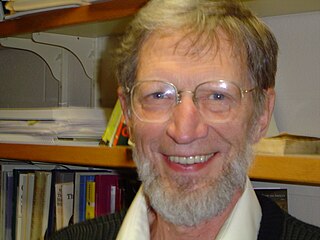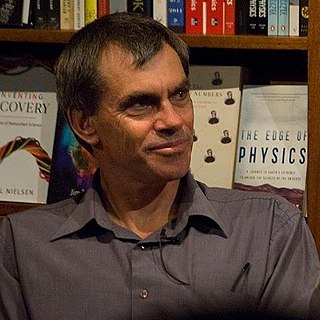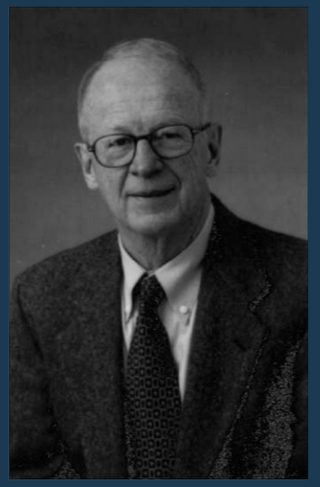
William Payne Alston was an American philosopher. He is widely considered to be one of the most important epistemologists and philosophers of religion of the twentieth century, and is also known for his work in metaphysics and the philosophy of language. His views on foundationalism, internalism and externalism, speech acts, and the epistemic value of mystical experience, among many other topics, have been very influential. He earned his PhD from the University of Chicago and taught at the University of Michigan, Rutgers University, University of Illinois, and Syracuse University.
The Transcendental Argument for the existence of God (TAG) is the argument that attempts to prove the existence of God by arguing that the existence of necessary conditions for the possibility of argumentation contradict with the proposition that God does not exist
An argument from nonbelief is a philosophical argument that asserts an inconsistency between the existence of God and a world in which people fail to recognize him. It is similar to the classic argument from evil in affirming an inconsistency between the world that exists and the world that would exist if God had certain desires combined with the power to see them through.

Alvin Carl Plantinga is an American analytic philosopher who works primarily in the fields of philosophy of religion, epistemology, and logic.
John David Caputo is an American philosopher who is the Thomas J. Watson Professor of Religion Emeritus at Syracuse University and the David R. Cook Professor of Philosophy Emeritus at Villanova University. Caputo is a major figure associated with postmodern Christianity and continental philosophy of religion, as well as the founder of the theological movement known as weak theology. Much of Caputo's work focuses on hermeneutics, phenomenology, deconstruction, and theology.
Internet Infidels, Inc. is a Colorado Springs, Colorado-based nonprofit educational organization founded in 1995 by Jeffery Jay Lowder and Brett Lemoine. Its mission is to use the Internet to promote a view that supernatural forces or entities do not exist. Internet Infidels maintains a website of educational resources about agnosticism, atheism, freethought, humanism, secularism, and other nontheistic viewpoints particularly relevant to nonbelievers and skeptics of the paranormal. Relevant resources include rebuttals to arguments made by religious apologists and theistic philosophers, transcripts of debates between believers and nonbelievers, and responses from opponents of a naturalistic worldview. The site has been referred to by one of its critics, Christian apologist Gary Habermas, as "one of the Internet's main Web sites for skeptics", and by skeptical physicist Taner Edis as "a major Web site serving nonbelievers". Its tagline is "a drop of reason in a pool of confusion".
Michael Lou Martin was an American philosopher and former professor at Boston University. Martin specialized in the philosophy of religion, although he also worked on the philosophies of science, law, and social science. He served with the US Marine Corps in Korea.
Ignosticism or igtheism is the idea that the question of the existence of God is meaningless because the word "God" has no coherency and an ambiguous definition.
Theological noncognitivism is the atheist position that religious language, particularly theological terminology such as 'God', is not intelligible or meaningful, and thus sentences like 'God exists' are cognitively meaningless. This would also imply that sentences like the negation of 'God exists' or 'God does not exist' are likewise meaningless, i.e., neither true nor false. It may be considered synonymous with ignosticism, a term coined in 1964 by Sherwin Wine, a rabbi and a founding figure of Humanistic Judaism.

Antony Garrard Newton Flew was an English philosopher. Belonging to the analytic and evidentialist schools of thought, Flew worked on the philosophy of religion. During the course of his career he taught philosophy at the universities of Oxford, Aberdeen, Keele, and Reading in the United Kingdom, and at York University in Toronto, Canada.

Marilyn McCord Adams was an American philosopher and Episcopal priest. She specialized in the philosophy of religion, philosophical theology, and medieval philosophy. She was Horace Tracy Pitkin Professor of Historical Theology at Yale Divinity School from 1998 to 2003 and Regius Professor of Divinity at the University of Oxford from 2004 to 2009.
John Patrick Hawthorne is an English philosopher, currently serving as Professor of Philosophy at the Australian Catholic University in Melbourne, and Professor of Philosophy at the University of Southern California. He is recognized as a leading contemporary contributor to metaphysics and epistemology.

Graham Robert Oppy is an Australian philosopher whose main area of research is the philosophy of religion. He is Professor of Philosophy and Associate Dean of Research at Monash University, CEO of the Australasian Association of Philosophy, Chief Editor of the Australasian Philosophical Review, Associate Editor of the Australasian Journal of Philosophy, and is on the editorial boards of Philo, Philosopher's Compass, Religious Studies, and Sophia. He was elected Fellow of the Australian Academy of the Humanities in 2009. Graham Oppy is widely considered by some philosophers to be the most formidable defender of Atheism living today.

William Leonard Rowe was a professor of philosophy at Purdue University who specialized in the philosophy of religion. His work played a leading role in the "remarkable revival of analytic philosophy of religion since the 1970s". He was noted for his formulation of the evidential argument from evil.
Paul Robert Draper is an American philosopher, most known for his work in the philosophy of religion. His work on the evidential argument from evil has been widely influential. He is currently a professor at Purdue University. He is co-editor of topics in the philosophy of religion for the Stanford Encyclopedia of Philosophy.
Atheism, in the broadest sense, is an absence of belief in the existence of deities. Less broadly, atheism is a rejection of the belief that any deities exist. In an even narrower sense, atheism is specifically the position that there are no deities. Atheism is contrasted with theism, which in its most general form is the belief that at least one deity exists.
Irving Singer was an American professor of philosophy who was on the faculty of the Massachusetts Institute of Technology for 55 years and wrote over 20 books. He was the author of books on various topics, including cinema, love, sexuality, and the philosophy of George Santayana. He also wrote on the subject of film, including writings about the work of film directors Ingmar Bergman, Alfred Hitchcock.
Agnostic atheism or atheistic agnosticism is a philosophical position that encompasses both atheism and agnosticism. Agnostic atheists are atheistic because they do not hold a belief in the existence of any deity and are agnostic because they claim that the existence of a divine entity or entities is either unknowable in principle or currently unknown in fact.
Alexander Robert Pruss is a Canadian philosopher and mathematician. He is currently a professor of philosophy and the co-director of graduate studies in philosophy at Baylor University in Waco, Texas.






